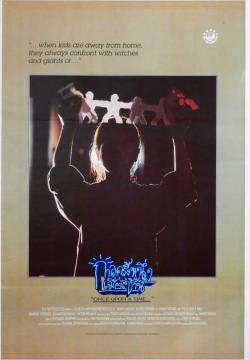The 70-year reign of King Bhumibol Adulyadej overlaid decades of Thai cinema history, from the golden age of 16mm movies in the 1950s to the country's first and only Cannes Film Festival winner in 2010. To mark the two courses of history, the Ministry of Culture last week announced the "70 Best Films In The Reign Of King Rama IX", an extensive survey that covers seven decades of Thai cinema, essentially comprising the country's cinematic canon.
This evening Deputy Prime Minister Wissanu Krea-ngam will chair the opening of a special programme at Scala Theatre. From today until Friday, nine titles -- from the 70 in the list -- will be screened to the public for free. The nine films will also travel to cinemas in Phuket, Chiang Mai, Nakhon Ratchasima and Prachuap Khiri Khan.
The programme tonight is Nonzee Nimibutr's 2499 Antapan Krong Muang (Dang Bireley And Young Gangsters), a stylish action film from 1995 credited as having revived the Thai film scene in the 1990s. The rest of the programme is a rich combination of vintage titles and modern films, old-school entertainment and arthouse favourites.
Joining Dang Bireley And Young Gangsters are Sethi Anatha (The Destitute Millionaire, 1956), the first Thai film to win a national film award; Mae Nak Phrakanong (1963), the 16mm version of the legendary ghost tale; Chu (The Adulterer, 1972), a classic drama about human desire; Sudsakorn (1979), the groundbreaking animation film based on a classic literary work; Nampu (1984), a landmark film about drug addicts; Mue Puen 2: Salween (Gunman 2, 1993), a film about border conflicts; Kalakrang Nueng Meuchao Nee (Once Upon A Time, 1994), a classic coming-of-age drama; and Loong Boonmee Raluek Chat (Uncle Boonmee Who Can Recall His Past Lives, 2010), the Thai winner of Cannes' Palme d'Or prize).
For the screening outside Bangkok, the programme also includes Phi Mak Phrakanong (2013), a comedic re-imagining of a folk tale and also the highest-grossing Thai film of all time.
From over 4,500 titles, the selection of the 70 films has undergone a lengthy process, beginning with public suggestions and going through rounds of expert vetting.
"It's important that these films represent people's choices, since we opened the floor for the public to submit their favourite films," said Chalida Uabumrungjit, deputy director of the Thai Film Archive and a member of the selection committee. "The 70 films on the list are a quality mix of many sentiments and periods of Thai cinema."
The oldest film is Suphap Burut Sua Thai (The Thai Tigers-Gentleman, 1949), followed by Pan Thai Norasingha (Oarsman Norasingha, 1950) and Santi-Vina from 1954. The most recent film in the list is a documentary about Thai rice culture, Pleng Khong Khao (Songs Of Rice, 2015).
Nearly all classic Thai films -- the titles that defined the roots, development and unpredictability of local cinema -- are featured, and they chronicle the period of movies as a novelty and entertainment (Money, Money, Money, 1965; Country Love Song, 1970); as social reflection (Citizen Thongpoon, 1977; The Country Teacher, 1978); and as commercial and avant-garde artistry (Mary Is Happy, Mary Is Happy, 2013).

Photos courtesy of Ministry of Culture/ Thai Film Archive

Photos courtesy of Ministry of Culture/ Thai Film Archive

Photos courtesy of Ministry of Culture/ Thai Film Archive

Photos courtesy of Ministry of Culture/ Thai Film Archive

Photos courtesy of Ministry of Culture/ Thai Film Archive

Photos courtesy of Ministry of Culture/ Thai Film Archive

Photos courtesy of Ministry of Culture/ Thai Film Archive

Photos courtesy of Ministry of Culture/ Thai Film Archive
They are films made during the 16mm era -- when live dubbers had to accompany every screening to give voices to the characters -- down to the period of social-realist cinema of the 1970s and to the modern renaissance of home-grown movies starting in the mid-1990s. All brand-name Thai directors who contributed to the artistic growth of Thai cinema over the decade are well represented: pioneers such as MC Sugrawannadis Diskul, MC Bhanubhan Yukol, Ratana Pesonji, Dokdin, Tawee Na Bangchang, Payut Ngao-krachang, Cherd Songsri, Mitr Chaibancha; modernisers such as MC Chatrichalerm Yukol, Piak Poster, Bandit Rittakol, Euthana Mukdasanit, Udom Udomroj; and contemporary mavericks such as Nonzee Nimibutr, Pen-ek Ratanaruang, Wisit Sasanating, Apichatpong Weerasethakul, Banjong Pishanthanakul, Nawapol Thamrongrattanarit; and many more.
To see the full list, visit the Content Thailand Facebook page.
To reserve tickets for the screening at Scala, call 1765.
The programme at Scala is as follows:


